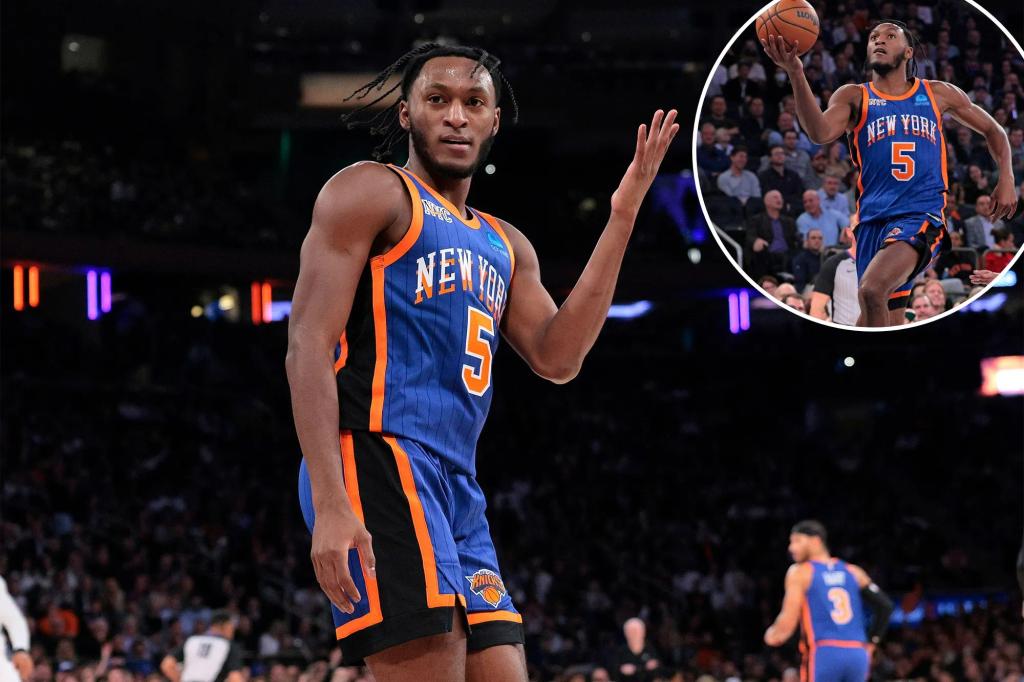Immanuel Quickley has high expectations of himself.
He has two lofty personal goals for this season.
“I want to try to get over 40 [percent] from 3, for sure,” he said Saturday. “Overall, I want to be over 50 [percent].”
Not easy.
He is off to a strong start from the field, so far shooting 47.3 percent after shooting a career-best 44.8 percent a year ago.
Quickley, however, has not found the touch from the 3-point line yet.
He is just at 32.6 percent after making 37 percent of his tries from beyond the arc last year.
“I’m going to try to get it,” he said of his goals. “If you set a goal for yourself, you’re going to try to get it. So I’m going to try to get it.”
Quickley is off to a good start, averaging 15.1 points per game along with 3.5 assists and 3.3 rebounds.
He is putting up those numbers in just 24.1 minutes, down from his 28.9 a year ago.
That’s partly due to a glut of guards on the roster after the addition of guard Donte DiVincenzo.
Quickley doesn’t seem bothered by it, though.
“It’s [not] necessarily how long you’re in the game, but what you do while you’re in the game that matters,” the fourth-year guard said. “I try to keep that mindset.”
When asked about Quickley’s minutes being down so far this season, coach Tom Thibodeau joked that the minutes police were back.
Of course, in the past he has been criticized for playing players too many minutes instead of not enough of them.
“The one thing we ask everybody is to sacrifice,” Thibodeau said. “You could make a case that Quick is a starter, Donte is a starter, Josh [Hart] is a starter. They’re sacrificing that for the team.”

The Knicks are surprisingly last in the NBA in blocked shots per game (1.9), but coach Tom Thibodeau doesn’t believe top rim-protector Mitchell Robinson is falling off even though he’s technically rejecting fewer shots.
“Even if Mitch is not getting the block, he’s impacting shots,” the coach said of Robinson, who is blocking 1.0 shots per game after notching 1.8 last season. “I think sometimes statistics can be deceiving. Oftentimes people tend to correlate high steals with playing good defense and oftentimes it’s risky gambles that you get to, and you’re breaking the defense down 10 times. So it’s not good but there seems to be a premium on that and to me, I’m more, play the ball properly, have the appropriate help, read the ball properly, challenge the shots, finish your defense, be disciplined.
“And I think that’s one of the biggest areas where he’s grown is the discipline that he has. Now he’s not picking up cheap fouls. We’re playing very hard without fouling. So he’s grown in that area tremendously.”
Source









